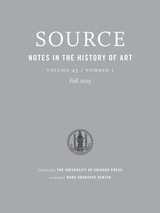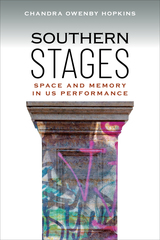
A pyramid in front of the Louvre. Buffalo Bill's Wild West Show and The Rite of Spring. Schoenberg and Shirley Temple. Just as the odd juxtapositions of Modernism produced a new way of seeing, so now collage, in the hands of Glenn Watkins, offers a new perspective on the art of our age. A rich and revealing picture of twentieth-century music and the arts, Watkins' work shows us what our present Postmodern aesthetic owes to our Modernist past.
Behind the many guises of Modernism we find an appetite for opposing impulses: the exotic and the home-grown, high and low, black and white, the passionate and the cool, the cerebral and the instinctive. Watkins shows us these oppositions at play in the music of Stravinsky and Ravel, Debussy and Schoenberg, Ives, Satie, Hindemith, Ellington, and Gershwin, in the art of Picasso and the Cubists, Cocteau, Léger, Brancusi and Noguchi, in the anthologies of Nancy Cunard and Main Locke, in the ballet companies of Sergei Diaghilev and Rolf de Math, and in the performances of josephine Baker. Throughout, collage asserts its power to enlighten through juxtaposition, resist resolution, sponsor pluralism, and promote understanding of an order that eludes all edicts.
The masks of Oskar Schlemmer, of japanese No drama, and of the commedia dell'arte, the mythologies attendant to the retrieval of folk traditions and the emergence of jazz, and the mass relocation of artists in a time of war-all have a place in this depiction and assessment of the legacy of Modernism. A heady exploration of questions surrounding Primitivism, Orientalism, and technology as they surface at either end of our century, this book exposes the millennial preoccupations mutually invested in our search for "first times" and our convictions about "the end of culture"

For nearly the last twenty-five years of Igor Stravinsky's incredibly full life, the noted musician, conductor, and writer Robert Craft was his closest colleague and friend, a trusted member of his household, and an important part of all of the composer's activities. Throughout these years, Craft kept a detailed diary, impressive in its powers of observation and characterization. That diary forms the basis for Stravinsky: Chronicle of a Friendship, now released in a substantially revised and expanded new edition.
This edition includes nearly twice as many illustrations and more than 35% entirely new textual material. In addition, Craft adds an evocative "Postlude" in which he summarily brings matters forward to the death of Vera Stravinsky, several years after that of the Maestro.
READERS
Browse our collection.
PUBLISHERS
See BiblioVault's publisher services.
STUDENT SERVICES
Files for college accessibility offices.
UChicago Accessibility Resources
home | accessibility | search | about | contact us
BiblioVault ® 2001 - 2025
The University of Chicago Press









